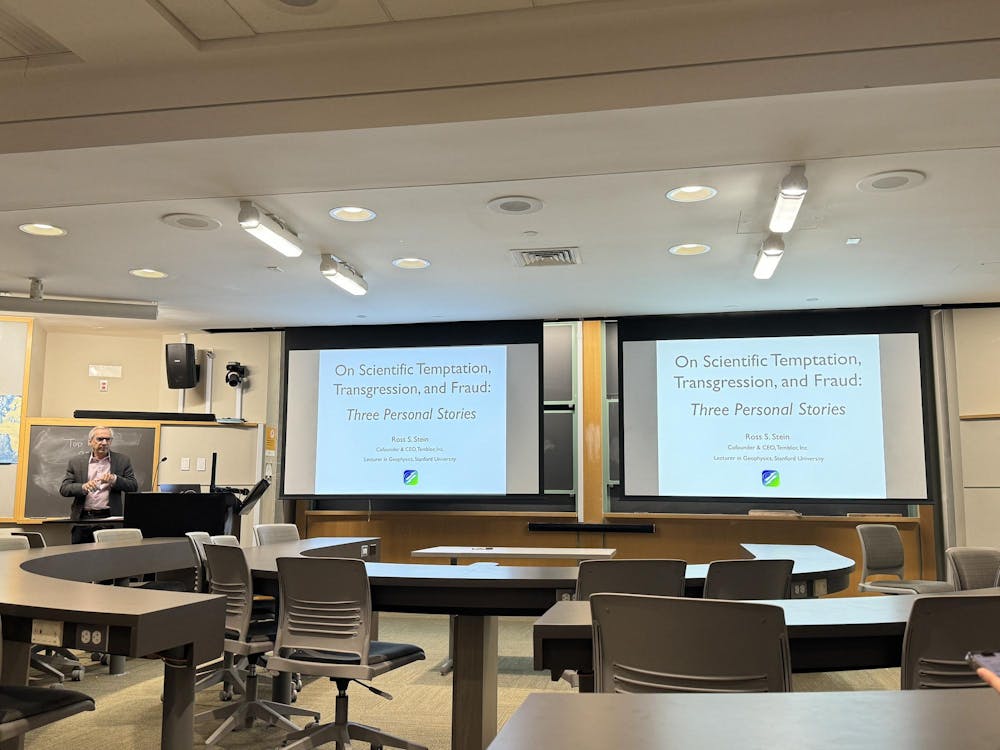On Tuesday, geologist Ross Stein ’75 presented a workshop for aspiring researchers on identifying scientific fraud. The talk also focused on the complexities and risks of reporting such fraud to relevant authorities.
The event was the first in a short series of workshops hosted by the Department of Earth, Environmental and Planetary Sciences that aims to cover various aspects of being a scientist.
Stein’s workshop outlined three real-life examples of ethical dilemmas in science. Throughout the lecture, which featured small group discussions, he asked the audience to put themselves into the shoes of people mentioned in the examples.
The first story outlined a researcher at Kyoto University who wrote a paper, along with other five graduate students, regarding the Kumamoto earthquakes. The paper was approved and published in Nature, a prominent scientific journal. According to Stein, an individual noticed anomalies in the paper and submitted a tip to the publication, which was not investigated.
An external committee of experts determined that there was fraud by the researcher but not the graduate students. A group of science faculty at Kyoto University initially rebuked this decision, but the university overrode the faculty’s decision, saying that the paper was fabricated during a press conference.
Stein then described a scenario in which multiple manuscripts were given to an individual who told multiple researchers that he submitted their manuscripts to the Journal of Geophysical Research. But during a phone call, Stein discovered that the individual lied to the researchers and did not submit any of the manuscripts.
For his third example, Stein discussed a paper about earthquakes. The paper excluded information that would have changed the hypothesis, Stein told the audience. Through his own analysis of the data, which used a different methodology, Stein rebutted the initial paper.
The authors of the initial paper asserted that there were no errors in their research and analysis, and the paper is still available on Nature.
Throughout the workshop, Stein emphasized that fraud is not “black and white.” Most researchers are likely to encounter fraud at least once in their academic careers, he told the audience.
But Stein mentioned that researchers’ job is to “acknowledge the ambiguity” of research and “inspire others to resolve from it.” He emphasized that loyalty is not a substitute for integrity, and scientists should work to “argue for and against” their hypothesis.
Yilin Xie ’26, who hopes to pursue a career in research, thought the workshop was a “good exercise” that allowed her to consider multiple perspectives related to fraud.
“It was eye-opening to learn about these things happening in the world,” she said. “But I really liked the message, where your motive as a scientist is the pursuit of truth.”

Claire Song is a university news and science & research editor for The Herald. She is a sophomore from California studying Applied Math-Biology. She likes to drink boba in her free time.





